The 20th China International Exposition of Housing Industry & Products and Equipment of Building Industrialization (CIEHI) with the theme of "Technology Empowering Better Housing, Innovation Contributing to Happy Life" opened in Beijing on 19 June, 2023, with more than 300 attendees including leaders from the Ministry of Housing and Urban-Rural Development (MOHURD), leaders from the organizers & co-organizers, leaders from local governments and local housing and building authorities, experts and scholars, exhibitors and media representatives present at the Opening Ceremony. More than 260 enterprises and local cities participated in the exhibition, with an exhibition area of more than 35,000 m2.
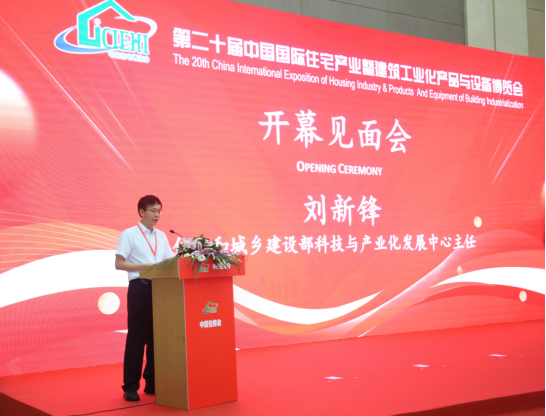
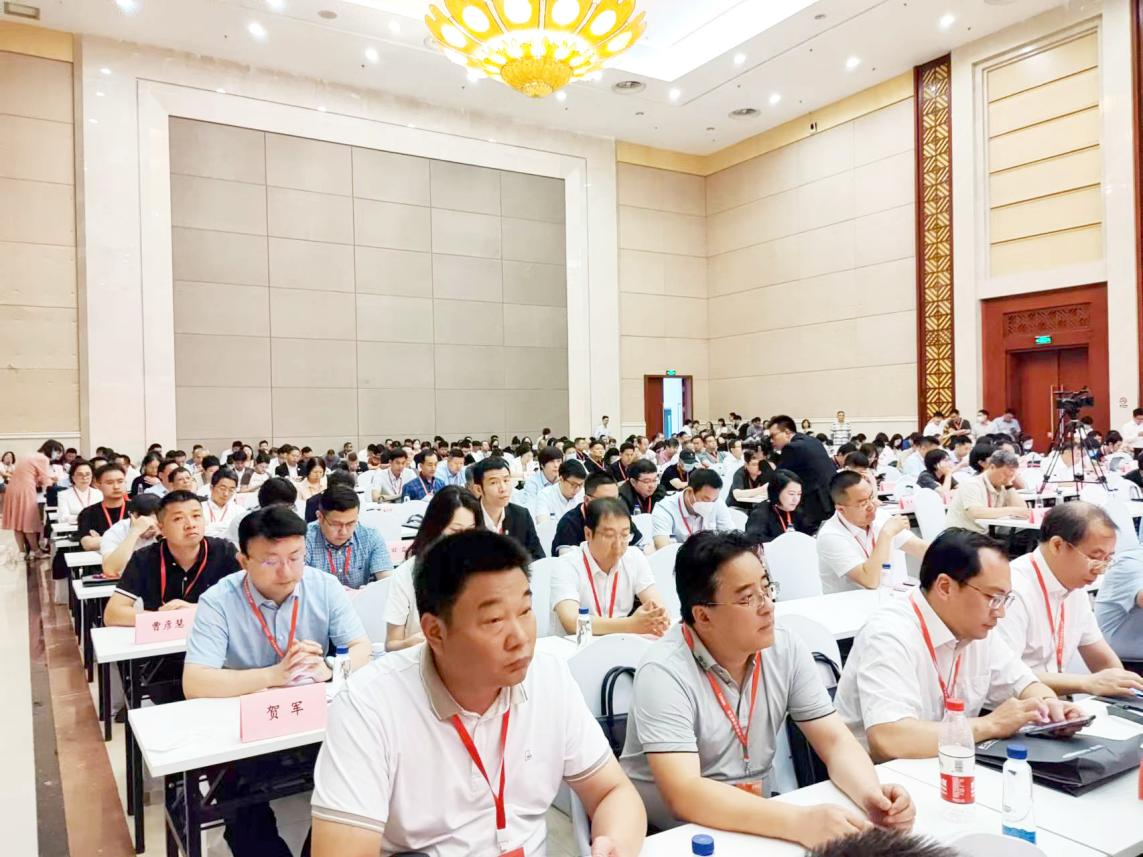
Opening Scene of CIEHI on 19 June
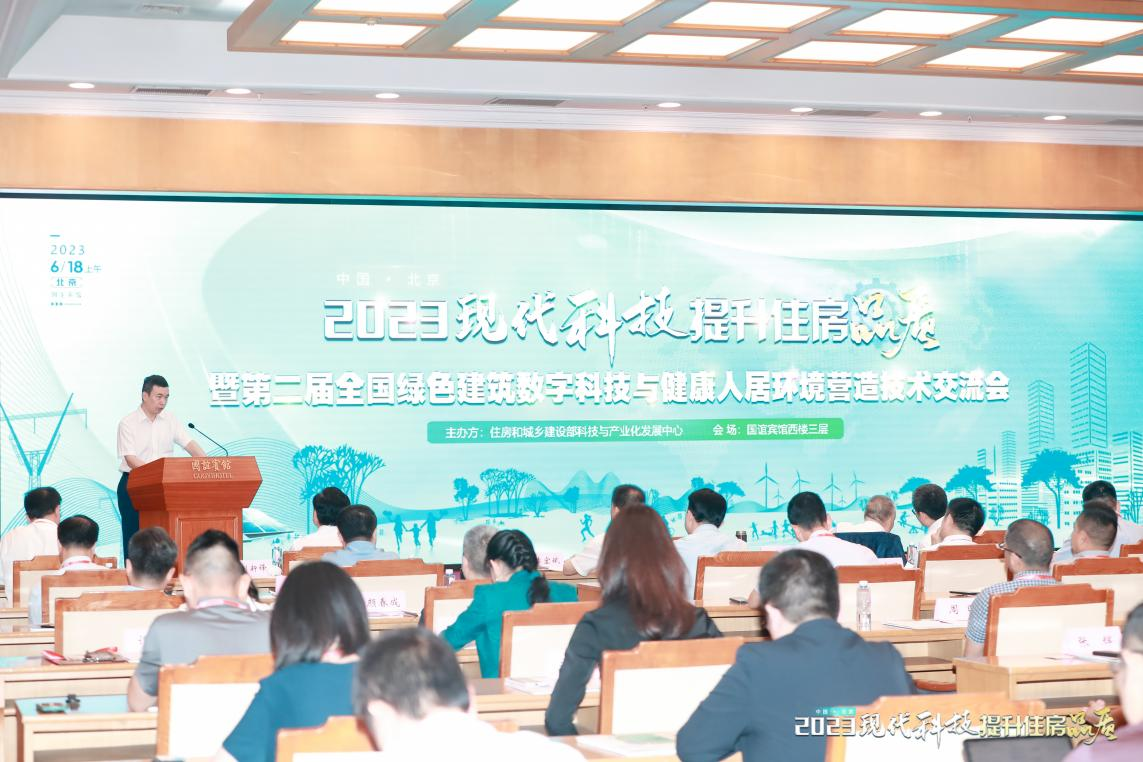
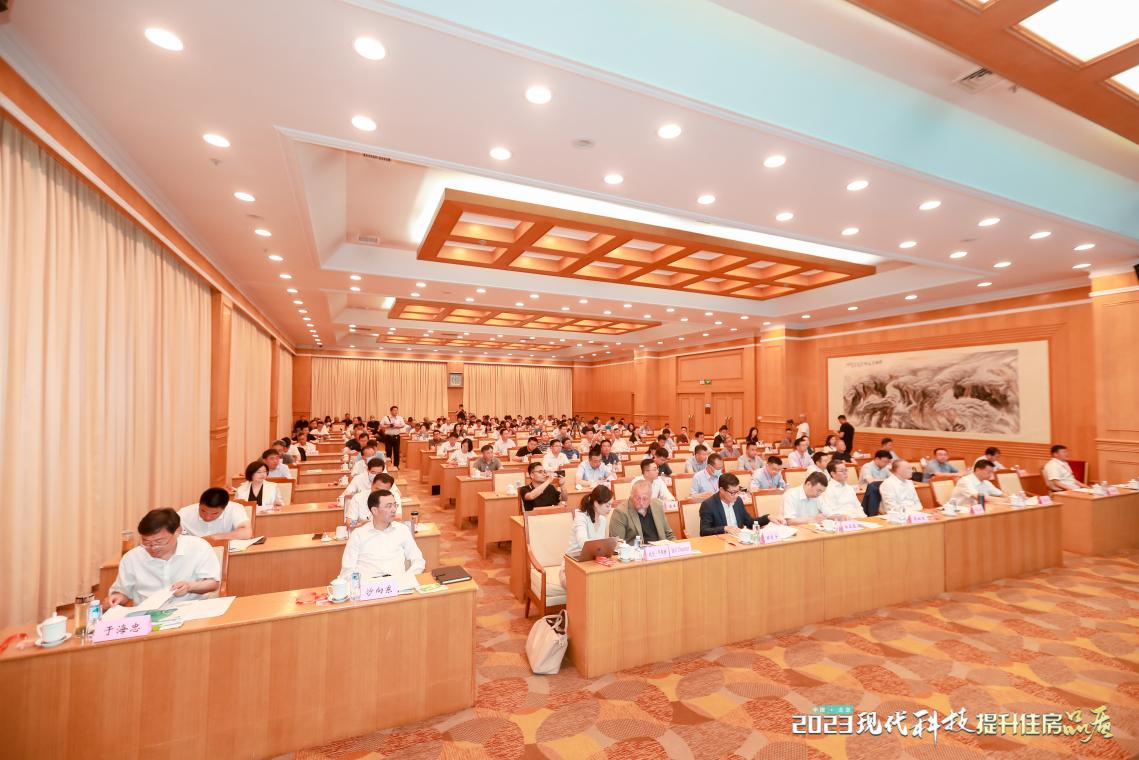
Technical Exchange Scene of CIEHI on 18 June
This year’s CIEHI aims to enable people to live in better houses, promote the transformation of industrialization, digitalization and greening of buildings, and mobilize high-quality development in housing and urban-rural construction. It covers events of pre-conference forums, opening meetings, technical exchanges, seminars, exhibitions, forums, public welfare lectures and other supporting meetings and related activities.
Li Rusheng, Chief Engineer of MOHURD, Hou Li'an, Academician of Chinese Academy of Engineering, Liu Xinfeng, Director of Technology and Industrialization Development Center of MOHURD, Bai Zhengsheng, Deputy Director of Standardization Department of MOHURD, Liang Hao, Head of Green Building Division of Science and Technology Center, Wang Huimin, Deputy President of China Real Estate Association, Li Jian, Deputy Director of China Center for Architecture and Culture, Mr. Bill Dunster, Founder of Zero Carbon Factory UK, etc delivered remarks and keynote speeches respectively at the “Modern Technology Enhancing Housing Quality & the 2nd National Exchange Conference on Digital Technology of Green Buildings and Healthy Human Settlements” held on June 18 during CIEHI. In the panel of “Local Exploration and Practices”, Yu Haizhong, Deputy Mayor of Xinyang City, Li Xianlin, Deputy Chief of Luoshan County, and Wang Zhigang, Deputy Chief of Qihe County introduced the innovative practices and achievements of their cities in building “good houses, good neighborhoods, good communities and good urban areas” +good cities with the whole process consultation and technical support by SUC Institute.
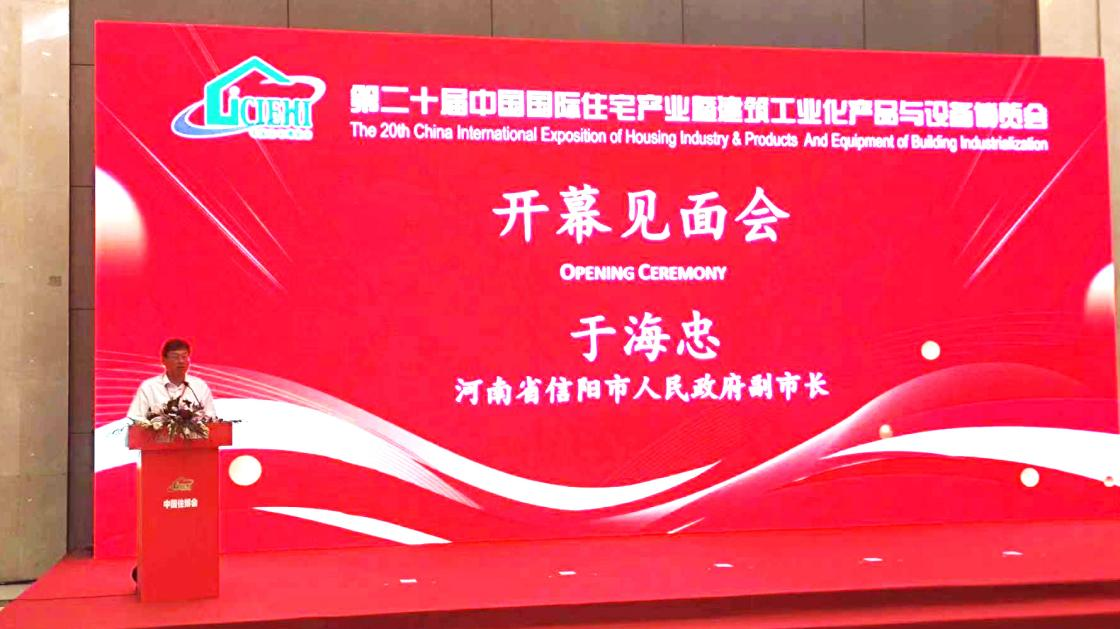
Yu Haizhong, Deputy Mayor of Xinyang City Delivered Opening Remarks at CIEHI
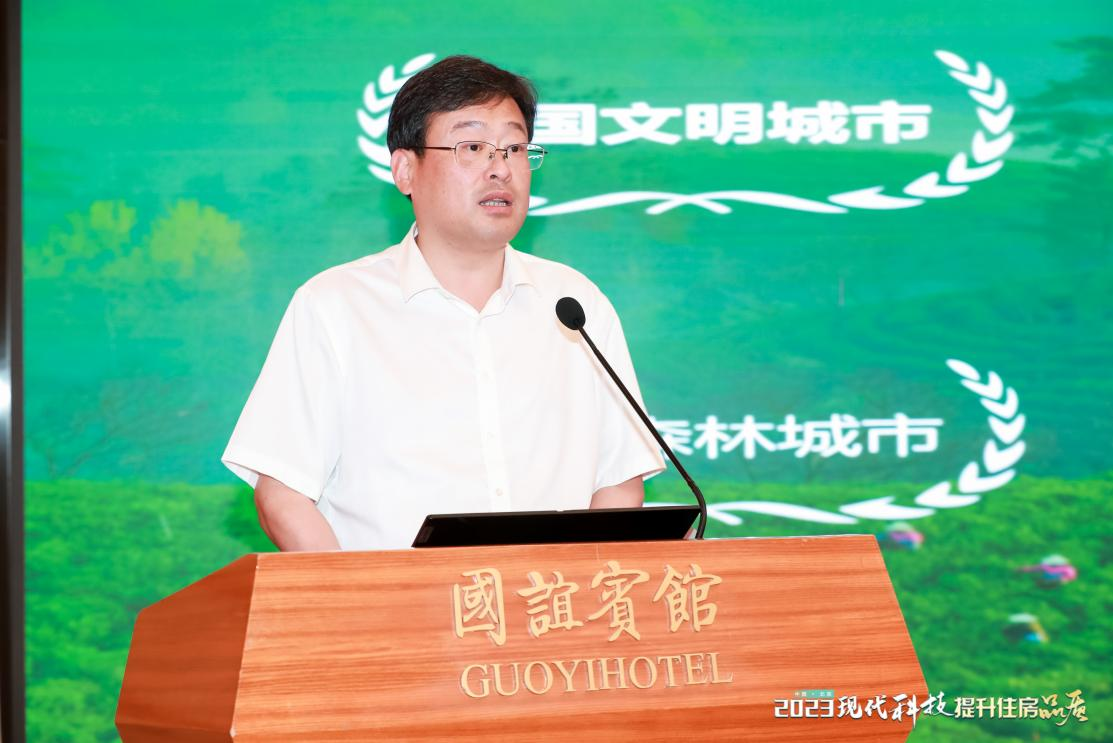
Yu Haizhong, Deputy Mayor of Xinyang City Delivered a Speech at the Technical Exchange of CIEHI
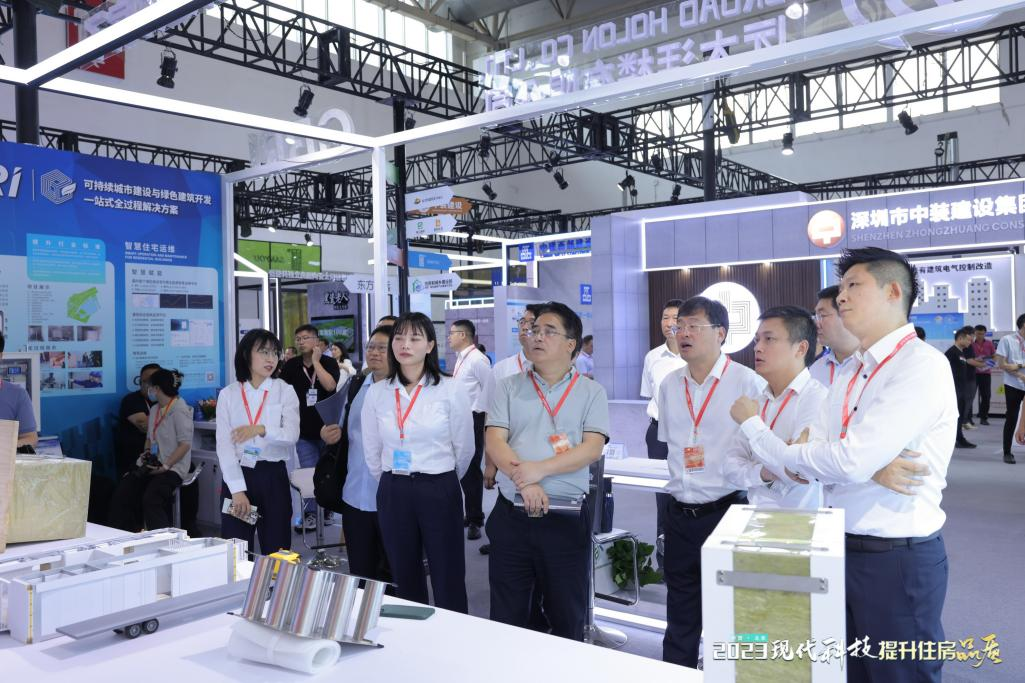
Li Xiang, President of SUC Institute Visited CIEHI with Local Leaders
In the Technical Exchange and Opening Ceremony of CIEHI, Yu Haizhong, the Deputy Mayor of Xinyang, introduced the pioneering exploration and practices in sectors of future human settlements and better life of old district in Xinyang over the past two years, respectively with the theme of “developing future human settlements technology and promoting the green rise of Xinyang” and “human settlements technology and better life”. He said that in order to implement General Secretary Xi Jinping's ardent request of "two betters", Xinyang combined the actual situation with serious planning on officially launching the city vision and brand of “Find Quality Life in Xinyang” at the end of 2021, developed the “1335” work layout, took the lead to put forward the urban transformation development path for “vigorous developing human settlements science and technology industry, accelerating the promotion of pilots of urban and rural future communities, working together to build the future human settlements science city” in China, in order to create a comprehensive “National Highland of Future Human Settlements Science and Technology Innovation”.
In 2021, Xinyang City Government hired the expert team of United Nations SUC Sustainable Cities and Communities to prepare the Strategic Development Plan for Building Xinyang Future Human Settlements Science City with high standards. Li Xiang, the President of SUC Institute, served as the Chief Advisor of the Construction of Future Human Settlements Science City and Future Urban and Rural Communities for Xinyang Government, led the SUC team as the consulting agency for the whole process of project construction. Xinyang Future Human Settlements Science City covers ten districts and administrative areas across the city, including nine major human settlements technology industry clusters, with the North Lake area of Yangshan New District as the core launching area. After more than one year of hard work, a number of leading enterprises of future human settlements technology had been put into operation in Xinyang last year, such as the Xiaomi Technology, Wanhua Ecology, Hangxiao Steel Structure, Mingyang Smart Energy, Modern Housing, Unisound, Sunglow Group, CP Group, Champion High-Tech, Broad Homes. The Academician Workstation of Large Residence Industry of Henan Province was also settled in Xinyang last year; the first “Exhibition Hall of Future Human Settlements Science and Technology” in China has been completed and will be opened soon; a series of activities such as the first “International Forum on Human Settlements Technology and Urban-Rural Green Development” and “Seminar of China Human Settlements Science-tech and Better Life” were successfully organized. A platform for exchange and cooperation between domestic and foreign human settlements technology industries has been built. A number of human settlements technology projects and industrial projects are being accelerated, such as the scenic spot of “North Lake Jiangnan”, North Lake Science and Technology Tribe, Xinyang Future Human Settlements Smart Island and Xinyang Artificial Intelligence Computing Service Center, etc. Xinyang is targeting at the grand goal of building the national highland of future human settlements science and technology innovation with sustained and comprehensive efforts.
At the same time, the first urban future community in Henan Province-Yangshan Better Future Community also started construction last year, with whole process consulting services provided by SUC team. A number of human settlements technology achievements such as construction robots of Country Garden, eco-board and assembly-type decoration of Wanhua Ecology, Xiaomi smart home, etc. were fully applied in the project. The first phase of Gugang Rural Future Community Project built by SUC Institute was completed last year, becoming the first case of transforming rural resettlement areas into rural future communities in China. A number of rural future communities of Hejiachong in Luoshan, Haotang Village in Pingqiao, Haojiachong in Shihe, Dongyue Village in Guangshan, etc are under accelerated construction. With the comprehensive improvement of living environment in Xinyang and SUC team's assistance in the whole process over the past two years, Xinyang City was awarded the Gold Award in Category E (the largest demographic group) of Whole City Award and the Criteria Gold Award in Arts, Culture and Heritage Management in the 21st Finals of the United Nations International Awards for Liveable Communities on June 2 this year, which is the first international honor and golden card for Xinyang City since its establishment.
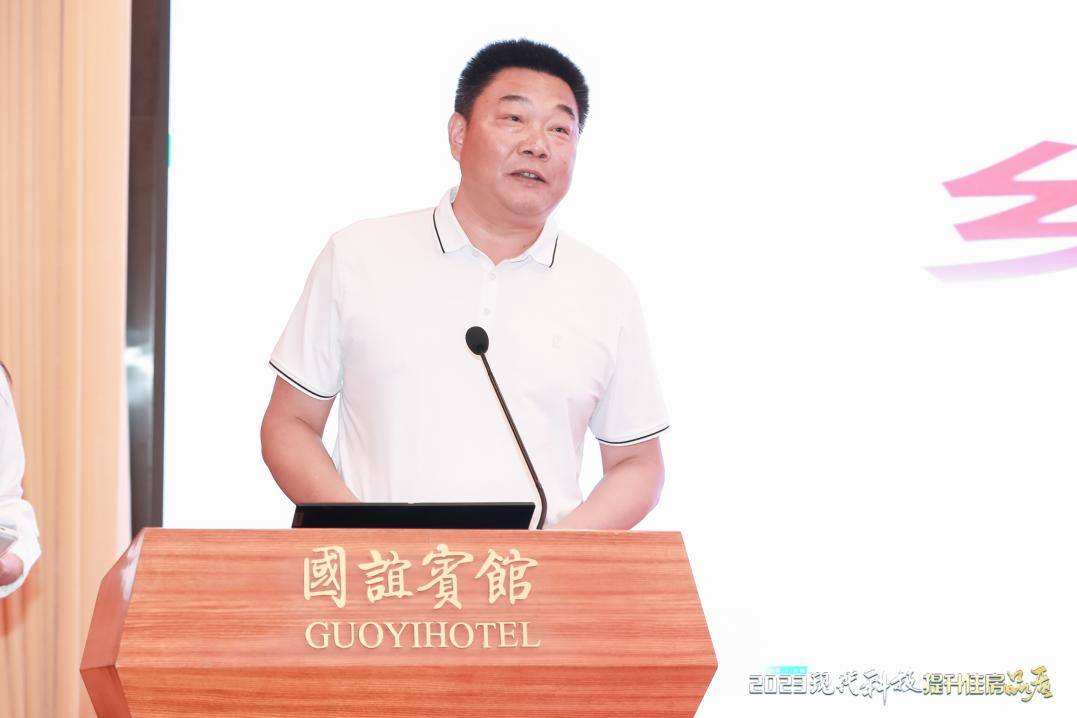
Li Xianlin, Deputy Chief of Luoshan County Delivered a Speech at the Technical Exchange of CIEHI
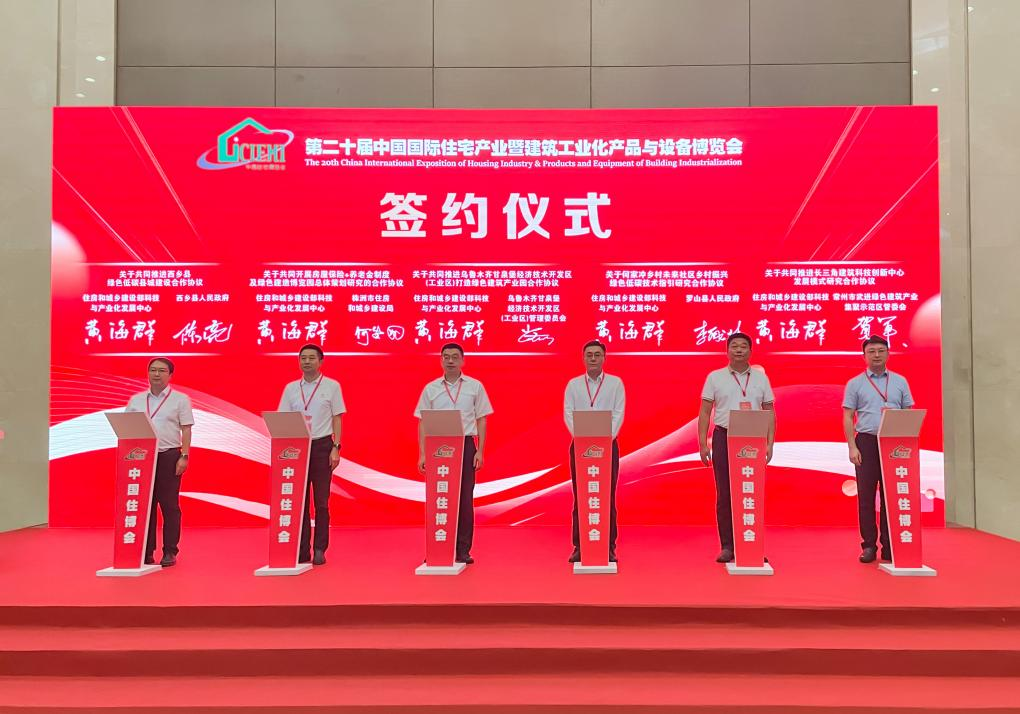
Signing Ceremony between Luoshan County and the Science and Technology Center of MOHURD at the Opening Ceremony of CIEHI
At the Technical Exchange on the 18th, Li Xianlin, Deputy Chief of Luoshan County said that Luoshan County is exploring the construction of a future rural community at Hejiachong, the starting place of the Long March of the 25th Red Army, in order to take the spirit of Ta-pieh Mountains and the Long March as an incentive to take the new Long March for rural revitalization and better life in the new era. In the planning and design of the future rural community of Hejiachong, the concept of "red and green integration, domestic and foreign integration" is closely followed. With the tactic of "1+1335", the existing resources of Hejiachong are comprehensively integrated, and the overall structure of "one center, four cultures and nine scenes" is focused on systematically carrying out future-oriented scene shaping and community creation, implanting and landing new business models, integrating to create Hejiachong with "humanity, common wealth, beautiful environment, digitalization and good governance", and striving to build a "first-class model" of the future village in the central region.
Under the overall planning and full process consultation of SUC team, the construction of Hejiachong Rural Future Community was officially launched in September 2022 and successfully included in the pilots of UN Guidelines for Sustainable Communities, which set another first in Henan Province. At present, the project has completed a cumulative investment of more than CNY 80 million yuan, adding more than 20 functional projects such as village living room, beautiful service station, red fun water garden, outdoor KTV, Chinese and foreign style cuisine street, bamboo star camp, floating bar, shared service center, etc., involving all aspects of community life service, tourism and commercial service, community characteristics experience. The community infrastructure, community roads and landscape appearance have been comprehensively improved. In the future, Hejiachong Rural Future Community will make every effort to build a "one-stop + immersive" red tourism resort and leisure area, to create a vibrant village where "people are attracted, jobs are provided and profits can be made". It is expected that the first phase of the Hejiachong Rural Future Community will be completed and officially enter into operation by October this year.
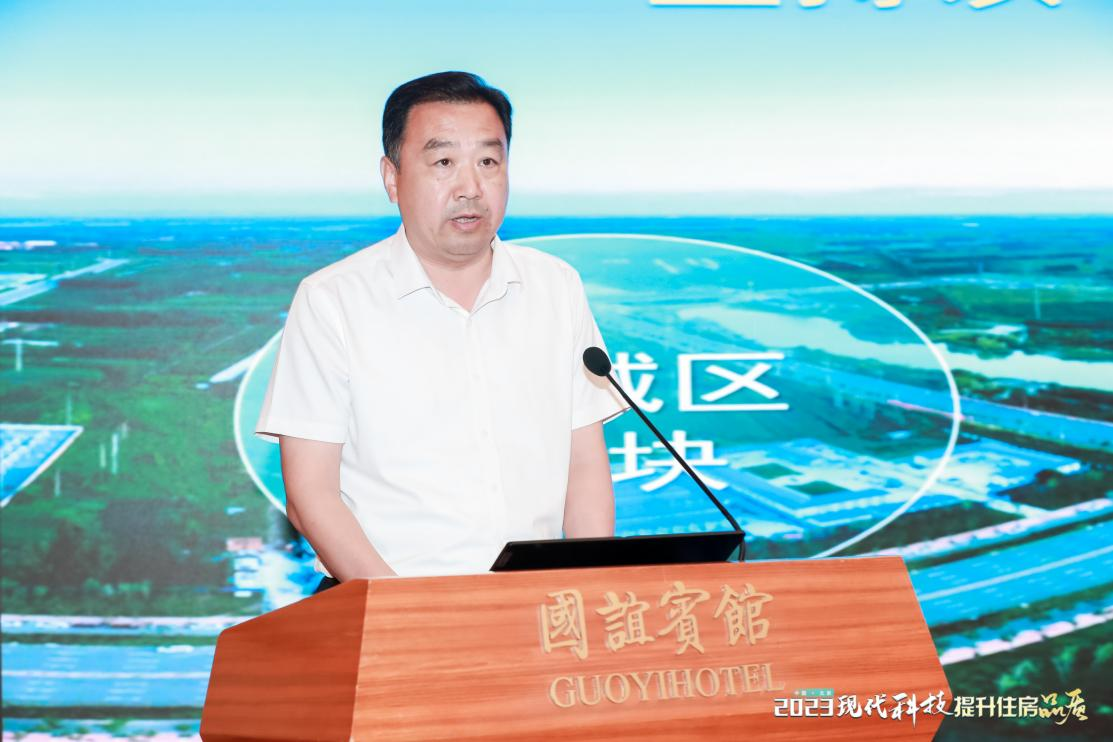
Wang Zhigang, Deputy Chief of Qihe County Delivered a Speech at the Technical Exchange of CIEHI
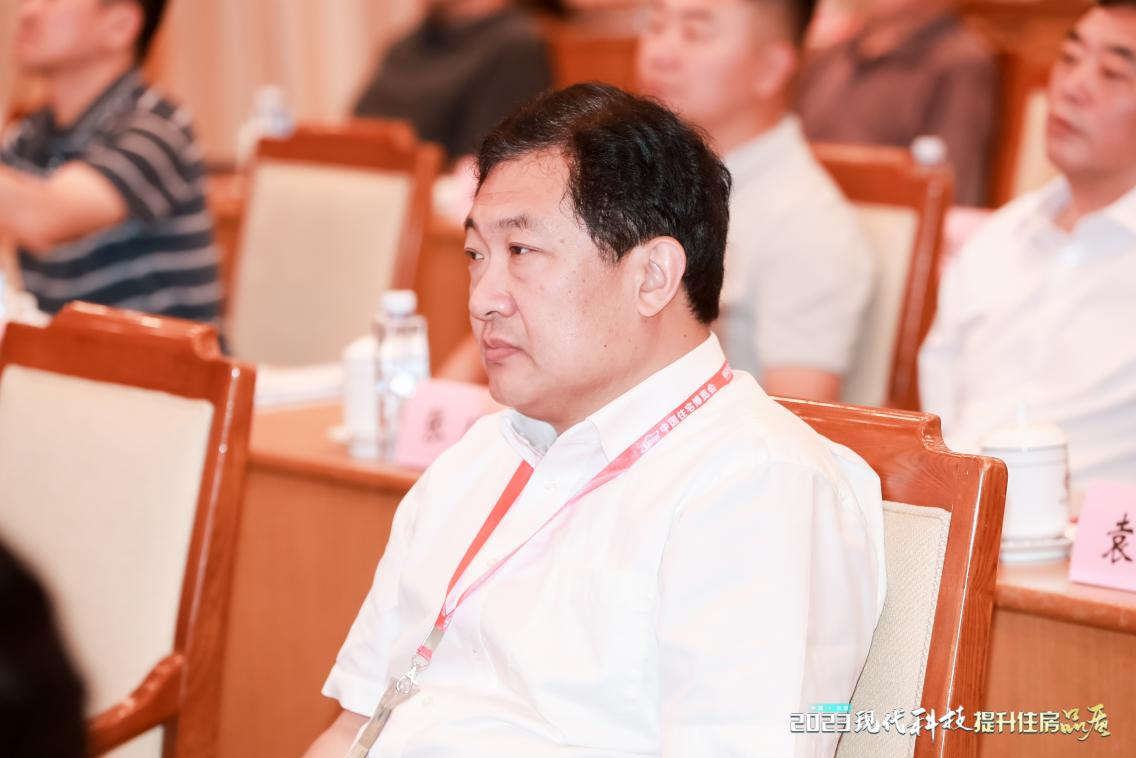
Leaders from Qihe County Housing and Urban-Rural Development Bureau Attended the Meeting
Wang Zhigang, Deputy Chief of Qihe County, Shandong Province, introduced the unremitting practices of Qihe County in planning, building and managing Qihe with the concept of building international liveable city and first-tier city in recent years. He said, Qihe County focuses on four areas of development of "good housing, good neighborhoods, good communities, good urban areas", and build four sections of "core areas, new south of the city, development zone, ecological city" with high standards. As a result, the city has a new look and urban functions are constantly improved. Since 2021, Qihe County has won the “United Nations LivCom Awards”, the “International Environmentally Sustainable Project Award” and the Special Award of “Environmental Protection and Green Economy” at the level of the whole city and the urban area of the Yellow River International Eco-City, continuing to polish the international brand of the city on “Better Environment, Better Qihe”.
It is understood that the International Awards for Liveable Communities focuses on international best practices and innovations in building the most liveable cities, and is currently the world’s only international competition covering such important topics of urban and community environmental management, ecological construction, resource utilization, human and nature, sustainable development, etc. It is also one of the world’s highest honors in urban construction and human settlements, endorsed by the United Nations and promoted globally, and widely known as the "Green Oscar" by the international community. SUC Institute is the sole organizing and promoting agency of the Awards event in China. In recent years, Qihe County has concentrated on urban renewal in the main urban areas, contributing to renovating the old urban areas; concentrated on urban quality in the new south section of the city, creating the most beautiful urban living room; concentrated on industry-city integration in the development zone, creating a modern industrial new city that is pleasant to live and work in; concentrated on ecological base in the ecological city section, creating a model area for high-quality development along the Yellow River with beautiful scenery and prosperous industry. Especially in the construction of the Yellow River International Eco-City, Qihe County insists on prioritizing creation of the environment followed by rebuilding the city, and prioritizing guidance on the function followed by development. The urban construction concept of "one-third water, one-third green, one-third development" are integrated, planning three major industrial sectors of tourism resort, high-tech zone and business new city. It strives to build a domestic first-class tourist resort city, science and technology innovation city and modern business new area, which has become a model of industry-city integration for livability, industry and tourism, and continues to contribute to the construction of "good cities" in China with Qihe model and Qihe wisdom.
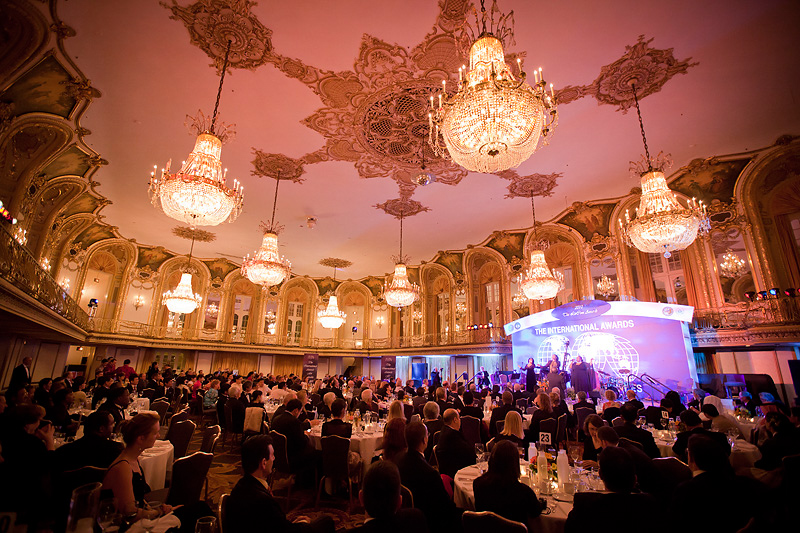
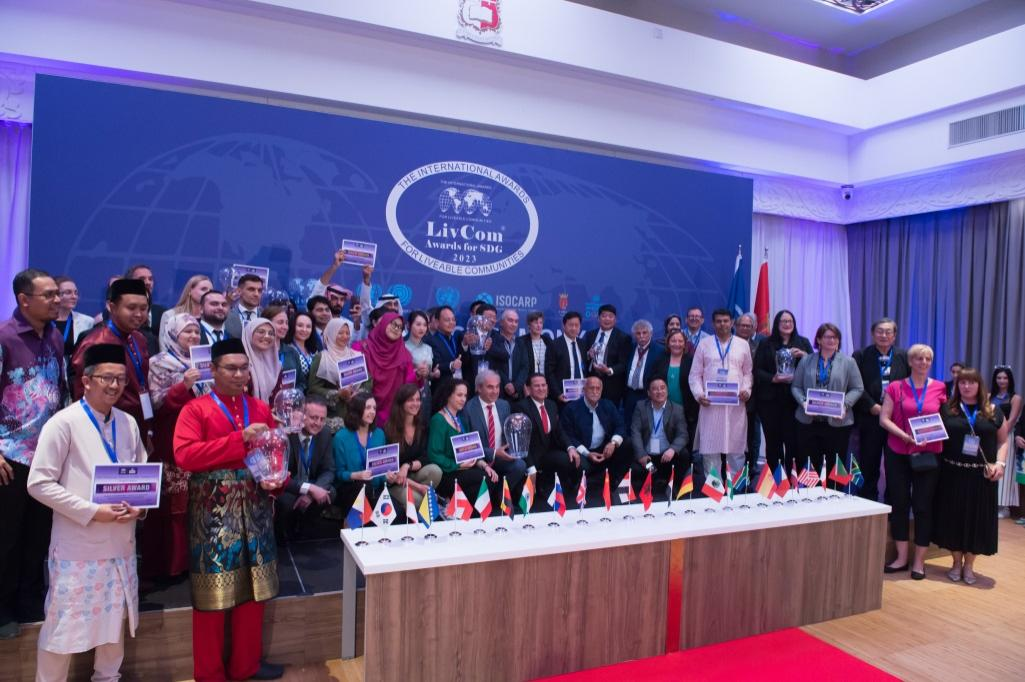
Events & Awards Ceremony of LivCom Awards
General Secretary Xi Jinping pointed out in the report of the 20th Party Congress that "we must insist that science and technology is the first productive force, talent is the first resource and innovation is the first driving force". SUC Institute is established as an open and international social think tank proposed by the “Two Sessions” and supported by the MOHURD with an official letter in March 2019. It is launched by the SUC Programme Management Center, the joint compiler and implementing agency of the United Nations Guidelines for Sustainable Cities and Communities (SUC Guidelines). Relying on the platform of the Sustainable Urban and Community Development Institute of China International Association for Promotion of Science and Technology and its domestic and international cooperation network, SUC Institute aims to provide high-level policy advice, scientific consultation and standardization services for China and countries along the Belt and Road to promote the application of SUC Guidelines and implementation of the 2030 Agenda for Sustainable Development Goals, as well as to conduct cutting-edge technology research and collaborative scientific and technological innovation in sectors of sustainable cities and communities at global level.
Since 2019, SUC Institute has been working together with domestic and foreign experts in promoting the localization of UN standards, creating the first standard and construction model for "sustainable buildings", "ecological communities" and "future communities" in urban and rural areas, integrating the advantages of planning, construction, management and transport resources, and building multiple leading new buildings and residential communities in Zhejiang, Fujian and Hunan; SUC Institute takes the lead to propose the complete concept and framework system of "Human Settlements Science and Technology Industry" and "Sustainable New City", and rapidly promote the construction of "Sustainable New City" and "Future Human Settlements Science City" with international standards and Chinese characteristics in Guangdong, Shaanxi, Zhejiang and Henan. The construction achievements of several innovative urban areas have attracted widespread attention at home and abroad; Especially since 2022, under the technical guidance and support of the Technology and Industrialization Development Center of the MOHURD, SUC Institute has been promoting the application of the United Nations Guidelines for Sustainable Cities and Communities in Chinese cities, anchoring the development direction of "Future Human Settlements", deepening the development of “good houses, good neighborhoods, good communities and good urban areas”, creating the “international liveable communities”, building an "age-friendly city" and an "international model city for quality development". It is hoped that this will facilitate more local governments to plan, build and manage their cities well, accelerate the implementation of the United Nations 2030 Sustainable Development Goals, and create a better life with Chinese modernization.
